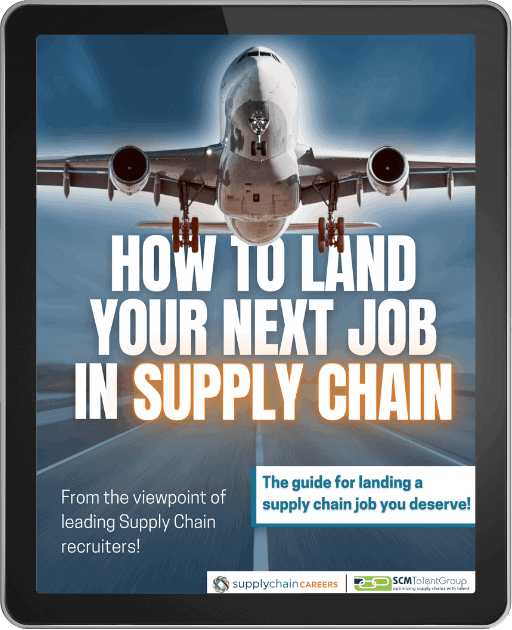
Supply Chain Planner Job Description
Supply Chain Planner Job Description
Any organization that has an inventory of products must plan and account for them. For example, a manufacturing plant isn’t able to make products if it doesn’t have sufficient parts. A store can’t sell merchandise if it doesn’t have supply to meet the demand. It is critical to track and manage what is needed and what is available at all times. This is the responsibility of the Supply Chain Planner.
Similar Job Titles
Some job titles that are similar to the Supply Chain Planner are:
- Demand Planner
- Master Planner
- Material Planner
- Inventory Planner
- Logistics Planner
Typical Job Titles in a Planning Team
The Supply Chain Planner position involves a multitude of activities and crosses over other roles that are involved in the total scope of SC planning. As part of supply chain planning, many organizations have a team made up of individuals who work together, each in their specialized targeted area, segmenting the activities involved in not only the planning but also the fulfillment process to meet corporate inventory needs.
For example, production, logistics, and demand management are integral for the organization’s supply chain operations to be successful. The Supply Chain Planner manages and oversees the activities of these employees because each has a significant role in the total scope of planning, however these employees may or may not be considered “direct reports.” Some of the roles directly connected to planning for supply chain are:
- Senior Demand Planner
- Logistician
- Supply Manager
- Production Manager
- Demand Planning Manager
- Director of Global Procurement
- Director of Logistics & Distribution
- Directory of Supply Management
- Distribution Manager
- Global Sourcing Manager
- Logistics Analyst
Supply Chain Planner Position Overview
A Supply Chain (SC) Planner is responsible for monitoring and managing global inventories and forecasting sales and production levels for materials that are needed. This includes tracking inventory delivery performance and response time, as well as handling capacity planning and other logistics projects. The role of Supply Chain Planner is critically important to the successful operation of an organization by meeting customer demand, increasing efficiency, decreasing waste, and lowering costs.
The person in this role is the primary point of contact and works closely with factory, production, sales, and logistics colleagues as well as with raw materials suppliers in order to ensure that plans are aligned with demand and supply.
Responsibilities of the role include resolving inventory in-stock issues such as the depth, timing, and efficient flow of inventory that support financial objectives. Additionally, supply chain planning includes managing the purchasing process, creating/managing inventory budgets, ensuring that inventory levels meet demand, and gathering data to prepare trends and forecasting reports for colleagues, management, and other stakeholders.
Some core responsibilities of a supply chain planner include:
- Plan both short- and long-term to align supply and demand to support inventory needs
- Project forward-looking inventory positions and financial implications
- Facilitate collaboration meetings with stakeholders and vendors to review purchase forecasts, proposed orders, and other operational issues
- Monitor weekly and monthly production plans, prioritizing work orders
- Monitor movement of materials through purchasing, storage, production, and retail distribution
- Set preferred stock levels and prevent excess inventory
- Review supplies to ensure quality, monitor stock levels and maintain accessibility to information
- Build relationships with transportation, warehouse supervisors, and co-workers to achieve higher performance
- Use scheduling software to coordinate deliveries
- Administer Enterprise Resource Planning data for manufacturing
- Develop and monitor internal and external key performance indicators including forecast accuracy and vendor scorecard metrics
- Make recommendations on flow considerations
- Design and create new tools to help improve the planning functions of supply chain
- Prepare detailed reports relating to MRP, back orders, and schedules
- Engage in continuous improvement as it relates to processes and material availability
- Manage relationships with key suppliers to maintain quality of goods, timely delivery, and compliance to terms of contracts
Required Education
A Bachelor’s Degree is required for a Supply Chain Planner position. Some of the most common majors for the role are:
- Business Administration
- Supply Chain Management
- Systems Engineering
Required and Desired Skills
A supply chain planner, first and foremost, must have excellent communication skills–both written and verbal. The SC Planner needs to be able to articulate complex concepts in a way that anyone within the company can understand, regardless of whether they have supply chain knowledge or not. Secondly, a SC Planner needs to be able to foster collaboration. Many times, teams inside and outside of the business need to work together even though priorities and expectations may compete and are not aligned. A planner needs to use honed communication, persuasion, and relationship-building skills in achieving desired outcomes.
Managing change is also a key element in the role. Leading employees through change requires empathy and active listening. The success of an SC Planner is dependent on others working within the plan. When this doesn’t happen, leadership can be rejected due to fear of the unknown among employees and a sense that the planner doesn’t appreciate their concerns.
Hard Skills
Some of the hard skills that are integral to the role of a Supply Chain Planner are:
- Analytical – Gathering data, analyzing data, understanding the meaning of data, and presenting data. Some analytical skills managers look for on a resume are: researching, forecasting, data mining, data presentation, resource management, data engineering, database management, data and metrics interpreting, reporting, diagnostics
- Computer – MS Office, spreadsheets, email, presentation and slideshows, database management, Quickbooks, and enterprise systems
- Technical – Necessary technical hard skills relative to lean manufacturing, multivariate analysis, linear regression, prototyping, workflow development, CRM platforms, and troubleshooting
- Presentation – Presentation hard skills include visual communication, slideshows, research, data analysis, reporting, graphic design
- Management – Management hard skills include business knowledge, budgeting, project management, finance, office management skills, logistics, negotiating, planning
Soft Skills
A supply chain planner, much like a project manager, must have certain soft skills as well as hard skills. These are some of the primary soft skills that are called upon:
- Leadership – The ability to lead a team or group of people is critically important in gaining trust, motivating others, getting buy-in, and making good decisions.
- Motivation – The ability to motivate a group over the long-term is part of collaborating and having successful outcomes, especially when there are opposing goals and expectations.
- Adaptability – The ability to be flexible and agile when things change or don’t go as planned is an important skill for an SC planner.
- Conflict Management – The ability to manage conflict across areas is a necessary skill in order to move forward and achieve desired outcomes.
- Resourcefulness – Being resourceful in developing tools and methods to solve problems is a necessary skill.
- Teamwork – The ability to function as a team player is required. The SC planner must not only be the leader but also a member of the “team” in seeking cooperation and working toward goals.
- Influence – A supply chain planner needs to be able to persuade others for their buy-in to the overall plan and influence them to engage in actions that align with the plan.
A Day in the Life of a Supply Chain Planner
Typical Working Conditions
If you are a supply chain planner, you find yourself in a variety of settings daily. A planner can transition from working at a desk in an office to observing operations in a manufacturing or warehouse facility. A planner may also need to travel to meet with suppliers and other partners. Most SC planners have full-time roles, and some work more than 40-hour weeks. This role is definitely not boring!
Technology Enhancements
A supply chain planner must be able to use many different technologies to gather data, analyze date, and forecast inventory levels.
Supply Chain Salary Range and Benefits
Salaries for supply chain planners vary depending on the geographic location, size of the company, and responsibilities of the position. Education, experience, location, and certifications have a bearing on the range. With all of these factors weighing in, the average salary in the U.S. varies from $68,000 to $102,000, with the median salary being $85,000.
